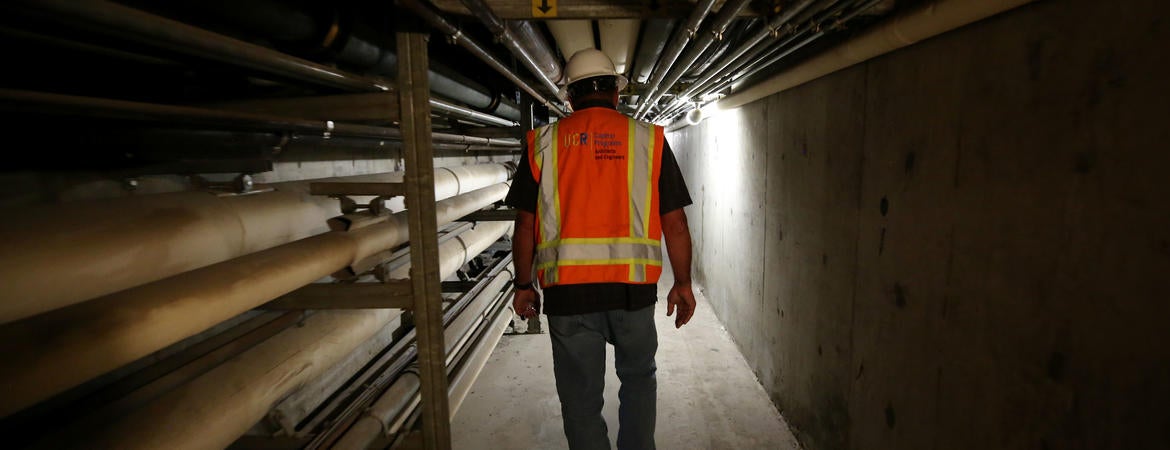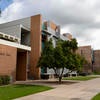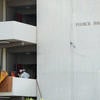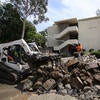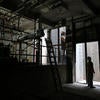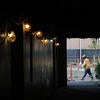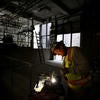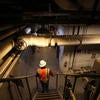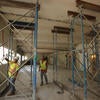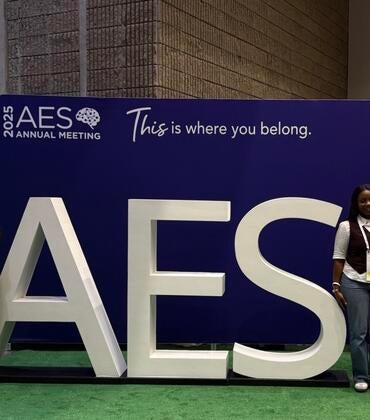One of UC Riverside’s oldest buildings is getting a makeover.
Part of Pierce Hall has been fenced off since January as work takes place on a $60 million renovation that will replace old mechanical, electrical, and plumbing systems, expand restrooms on all floors, and update fire alarm systems.
The project will also modernize the more than 114,000-square-foot facility, built in 1966, with new class laboratories that will support STEM programs.
Construction is being done in phases, starting with the north wing where crews have put up temporary construction walls to separate it from the rest of the building, which remains in use, said Dave Bomba, project manager with UCR’s Planning, Design and Construction department.
Work began with the demolition of interior concrete walls in the north wing, which will be renovated to create instructional laboratories on the first and second floors. On the third floor, existing labs will be renovated to support low- to medium-intensity research.
Four antiquated instructional labs in the center wing will also be renovated while a new seminar room will be added to the south wing.
The first phase is expected to continue through December. The second phase, focusing on mechanical, electrical, and plumbing upgrades, will take place between January 2020 and March 2021, after which the project is anticipated to be complete.
The mechanical, electrical, and plumbing equipment and fixtures are all housed in the basement and will be replaced with more modern equipment, Bomba said.
That poses some challenges to construction crews as they have to lower in equipment and materials with cranes through outdoor vents, he said. During the replacement of electrical equipment, the building will be powered through auxiliary generators.
As part of the construction work, contractor W.E.-O’Neil has set up modular buildings and construction equipment in a fenced-off central campus location.
Bomba said crews are trying to minimize disruptions, with some work performed at night. The College of Natural and Agricultural Sciences, which occupies much of the building, has also had to relocate some classes and offices, with Bomba noting staff, faculty, and students have taken it in stride.
“I think they know the end concept, even though it’s going to take two years, is going to be much better then what they have now,” he said.
